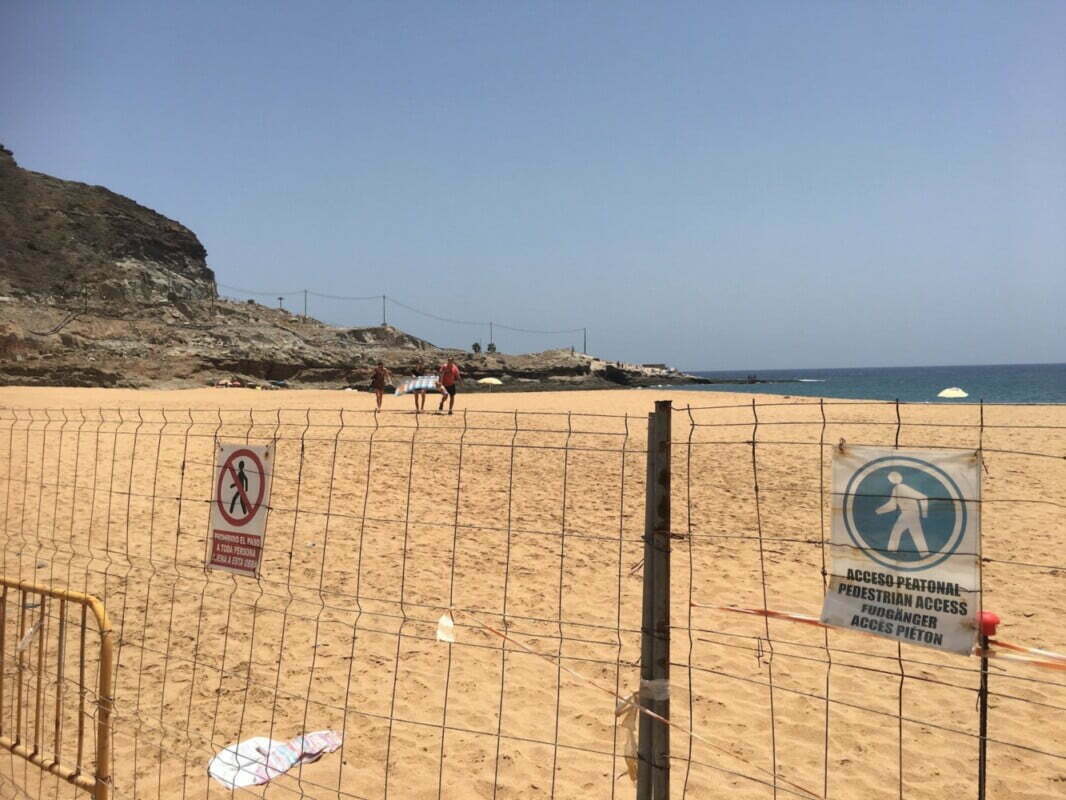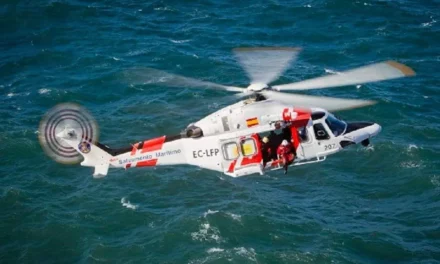The “Costas”, Coastal Authority, Demarcation of Coasts Las Palmas, have postponed their planned final act in the recovery to the Spanish State of the controversial Tauro beach, which was scheduled for today with the planned signing over of the land, and the nullification of the concession awarded to Anfi Tauro, following an order from the Superior Court of Justice of the Canary Islands (TSJC – Canary Islands High Court) who are looking into precautionary measures requested by Anfi Tauro, the company responsible for the artificial beach since 2015. The operation was to be a formal act between the Costas and Anfi Tauro, initially scheduled for May 12, in order to comply with the final 2020 cancellation of the concession and to sign the deed of reversion and delivery of the concession for the maritime public domain lands. The Costas will now wait for the Canary Islands high court to study and resolve the precautionary measures requested by the timeshare company, as they attempt to recover the beach, and for the exploitation of the cove to return to the State once the matter has been resolved.
Head of the Las Palmas Coastal Demarcation, Rafael López Orive, said on Tuesday that he would not be attending this event today, while waiting to hear the decisions of the TSJC. As the regional representative of this state institution, he had postponed the signing of the reversion of the concession until today, while awaiting the results of a detailed report on the condition of the sea floor, after Anfi and Santana Cazorla deposited 70,000 cubic meters of sand brought from the disputed territory of Western Sahara back in 2016. Anfi Tauro declined yesterday to make any further statements, referring only to the precautionary measures they have requested from the Regional High Courts.
The TSJC’s order comes after Anfi Tauro filed a contentious-administrative appeal against the office of the Demarcation of the Coasts in Las Palmas, on April 12, 2021, in which the Costas summoned the company to sign the act of reversal, to formally recognise the return of 11,200 square meters of maritime domain public land to the Spanish State. The concession was originally granted by Ministerial Order on October 1, 2015 to “regenerate Tauro beach and exploit seasonal services, hammocks and umbrellas”. However controversy soon followed with the beach having been officially closed to the public since February 2016.
On appeal, Anfi Tauro claimed the necessity for an “urgent precautionary suspension” of the execution of the Costas intentions, but the TSJC has denied that request as it did not appreciate any reasons for such urgency. “Although it is intended to protect the same in the peremptory nature of the period indicated for the act of reversion to take place – set for May 12, 2021 -, the truth is that the interested party was notified of said act on April 12, 2021″ pointing out that the urgency was not claimed by the company until after they were summoned to the signing, though the order was well known prior to that.
Consequently, the court will process precautionary measures by ordinary means and based on article 131 of the Law of Contentious-Administrative Jurisdiction and the interested parties may not request any further measure again under the that article of law. Anfi are either seeking a reversal of the decision or some form of compensation, as they claim to have already spent €2m on the unfinished reconditioning and “improvement” of the beach.
Once the reversion act has been signed, the right to exploitation on Tauro beach will return to the State, and its reopening to the public, after more than five years closed, will then be the responsibility of Mogán Town Council, who had previously requested the concession for seasonal services from the Costas. Mogán will then need to initiate the procedures to put into operation life guard surveillance and first aid services. Something the local mayor has since suggested may need to wait until the removal of a breakwater illegally placed on the shoreline, despite not being included in the Anfi license.
Until 2016 the beach was a pebbled cove, and a partially protected environment, onto which the Anfi Tauro group, working with Grupo Santana Cazorla, deposited 70,000 cubic meters of sand, extracted from the disputed territory of Western Sahara (in contravention of UN guidance on disputed territories) placing it onto the beach in preparation for exploitation and operation of seasonal services and other businesses that were to be installed at the site as part of a much bigger project. The sand was recently discovered to be covering an outlet pipe from Anfi Tauro’s desalination plant which has been spilling brine under the sand the whole time.













